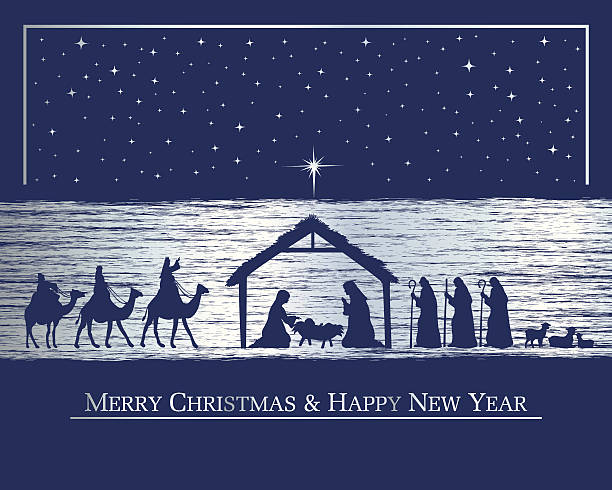In the Catholic Peace Weekly Peace Column, a Korean college professor teaching in the States gives us a meditation on Advent, Christmas, and the New Year.
Advent is the boundary between setting and rising. Only one page is left on the calendar, and the new year has already arrived in the liturgical calendar. We brace ourselves for a new beginning, we look back on the past year while waiting. It is natural to feel regret and sorrow because of things undone. Self-blame and regret keep us stuck in the past, and even the future is tailored to fit the wishes of the past. However, it is not only mistakes that are a problem for at times brilliant moments actually turn into snares.
An appropriate word comes to mind to describe Advent— Liminality. This word means a state of transition in which the boundaries of time are broken down— derived from the Latin word ‘limen’, meaning threshold. This concept, elaborated by cultural and social anthropologist Victor Turner, refers to the ambiguity or loss of direction that occurs in the intermediate stage of a paradigm shift—a situation where the old is left and a new perspective is introduced.
The threshold is the boundary that separates the inside and outside of the house and between rooms. Liminality does not belong to any space, a threshold. A time when one experiences vulnerability for the sense of belonging and identity is left behind, a sacred time that must be passed to start something new.
Metaphors commonly used to express liminality in literary works include wilderness, exile, and the grave. It means having to face hardship, fear, loneliness and loss. It means you can meet a new you only after going through the symbolic ‘death’— letting go of your previous self. The occasion is grace disguised as coincidence. An event that breaks the law of time (Chronos) called continuity and introduces a new order (Kairos). Thus, an event in which my time meets God's time and the transition to a new me becomes possible. Therefore, grace is not just about repairing what is wrong. It is not about restoring the glorious past. It is an event where the order of life is overturned. It is an event where I see the world through God's eyes, not my eyes.
Grace is God's work. It's not something I decide to do. We must remember grace comes often when most vulnerable. Grace can also be difficult to accept because of its shabby and insignificant appearance. Like a baby in a manger. Like the wise men of the East who followed the star and stopped in a place for animals in Bethlehem, you must have a sense of direction different from that of the world to identify the places where grace enters. You bow your head and open your heart.
Being stuck in the past and not being able to accept grace is probably not just a personal problem. In groups, societies, and countries, most of the justification for conflicts and disputes comes from regret for what one does not have and cannot achieve, and obsession with the glorious past. From the distant Crusades to the recent Israel-Hamas war, look at how cruel and ruined human beings are by attachment and obsession.
The baby Jesus comes again in these troubled times as he did 2,000 years ago. Are we ready for him? Is there a manger in my heart for him to lie down and rest?
